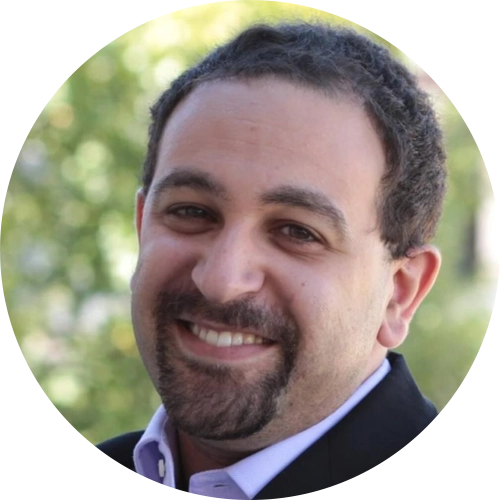
Daniel Armanios
BT Professor and Chair of Major Programme Management, Saïd Business School, University of OxfordDaniel Armanios is the BT Professor and Chair of Major Programme Management at Saïd Business School and a Professorial Fellow of St Anne's College. He also holds a Courtesy Appointment with the Department of Engineering Science. He is also a Distinguished Visiting Professor of Leadership at Tsinghua University in Schwarzman College. He was previously an Associate Professor in the Department of Engineering & Public Policy at Carnegie Mellon University.He holds a Master's degree from the University of Oxford in Management Research and in Water Science, Policy and Management (MSc), where he was a Rhodes Scholar. He holds a PhD from Stanford University in Management Science & Engineering, where he was a joint National Science Foundation and Stanford Benchmark Graduate Research Fellow.
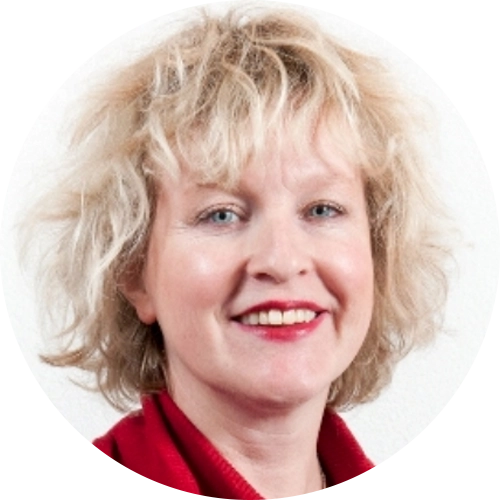
Yvonne Benschop
Professor of Organizational Behaviour, Institute for Management Research,Radboud University, the NetherlandsYvonne Benschop is Professor of Organizational Behavior at Institute for Management Research at Radboud University, the Netherlands. She is Head of the Department of Business Administration and director of the interdisciplinary research group Gender and Power in Politics and Management. She is affiliated with the Center for Gender in Organizations at Simmons School of Management in Boston, USA. She has received multiple grants from FP7, ESF-EQUAL, NWO-STW, MSC ETN, several Ministries in the Netherlands and Flanders, and private organizations for her work the responsibility of organizations for gender equality, diversity and inclusion. She studies informal organization processes that produce organizational inequalities and interventions to change these processes and inequalities. She currently works on a research project on the influence of postfeminism in organizational change, and on a project on intersectional equality.
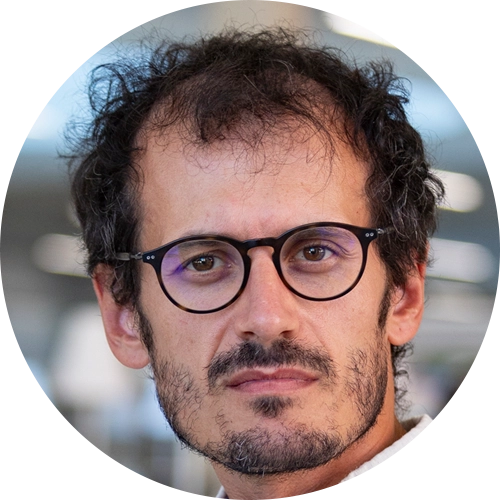
Stefano Bianchini
Associate professor BETA, Université de StrasbourgStefano BIANCHINI is Associate Professor at the Faculty of Economics and Management of the University of Strasbourg. His main research interests are in the areas of technological change, innovation, and the economics of science. Stefano has led several funded projects on the socio-economic impact of digital transformation, the diffusion and impact of artificial intelligence and automation technologies in science, and the nexus between digital transition and sustainable development. He acts as expert-advisor for the European Commission (DG JRC Modelling, Indicators and Impact Evaluation) and the OECD (Structural Policy Analysis Division, Economics Department).

Sofia E. Bracco
Psychology Department of Stockholm University, PhD StudentSofia E. Bracco (she/they) is a PhD candidate at the Psychology Department of Stockholm University and part of the European Training Network G-VERSITY – Achieving Gender Diversity. Their current research project focuses on media representations of and attitudes toward trans and gender diverse people in daily life and in the workplace. Previously, she worked as a Research Assistant at the Psychology Department of the University of Padova, Italy, where she received her Master Degree in Social and Organizational Psychology in 2020 with a thesis on gender conspiracy theories. Her main areas of interest and expertise are: gender and sexual minorities, gender beyond the binary, queer theory, intergroup relations and prejudice, parasocial contact and media representations.
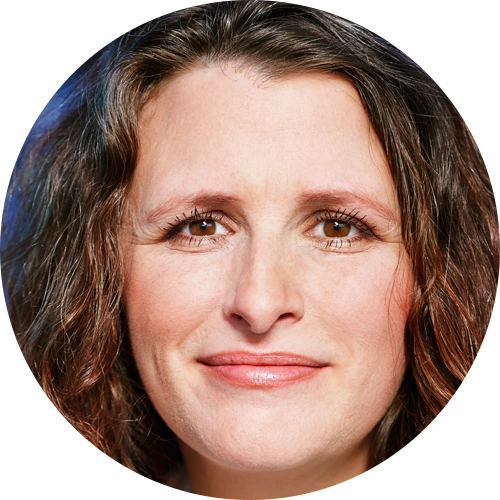
Simone Brixius-Anderko
Assistant Professor, University of Pittsburgh School of PharmacyDr. Simone Brixius-Anderko earned a Ph.D. in biochemistry at Saarland University (Germany) in where she developed a sustainable biotechnological process to generate pharmaceutical steroids with human cytochrome P450 enzymes (P450, CYP). She transitioned to the lab of Prof. Emily Scott at the University of Michigan (College of Pharmacy) to receive training in P450 X-ray protein crystallography. She joined Pitt Pharmacy as an assistant professor in 2021 and studies P450-mediated fatty acid metabolism in disease progression to find new treatment approaches. She is a passionate mentor and deeply enjoys training the next generation of scientists.
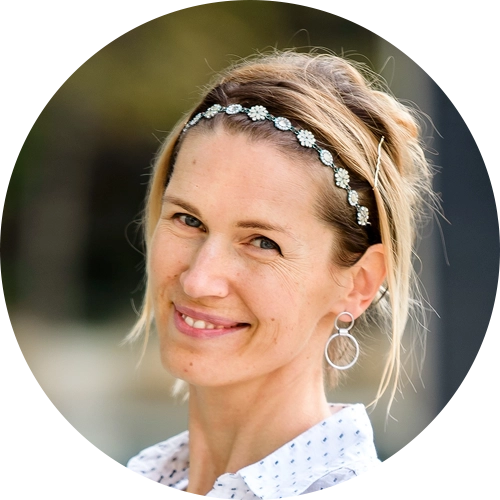
Barbora Buhnova
Coordinator, Associate Professor and Vice-Dean, Masaryk University (MU), BrnoBarbora Buhnova is an Associate Professor and Vice-Dean at Masaryk University (MU), Faculty of Informatics (FI MU) in Brno. Following her research career in Germany and Australia, she now leads multiple research teams at Faculty of Informatics MU and Czech CyberCrime Centre of Excellence C4e. Next to her academic activities, she is passionate about tech education among general public, being a Co-Founding and Governing Board member of Czechitas, a non-profit organisation aiming at making IT skills more accessible to youth and women (with 30,000+ graduates). She is a member of multiple initiatives engaging more women in tech (e.g. EUGAIN: European Network for Gender Balance in Informatics) reaching across the entire Europe. Furthermore, she is a devoted speaker and author of multiple research studies on gender-sensitive tech education. She has received numerous recognitions for her activities, e.g. being featured among ACM Diversity Heros (2021), TOP Personalities in Tech (Computerworld, 2021), TOP Women in the Czech Republic (Hospodarske noviny, 2023) and The Most Influential Women of Czechia (Forbes, 2023).

Jessica Cadesky
Gender Equality and Inclusion Advisor, IDRCJessica Cadesky is the Gender Equality and Inclusion Advisor at the International Development Research Centre where she works in the Programs and Partnership Branch to integrate GEI across all aspects of research programing. With over 15 years of experience as a gender equality and violence prevention specialist, Jessica has served with United Nations agencies, the Red Cross Red Crescent Movement, and local and international NGOs in Central and West Africa, the Caribbean, South Asia and the Middle East and North Africa. Jessica holds a PhD in International Development from the University of Ottawa and a Master of Arts from the Institute of Development Studies (University of Sussex, UK).
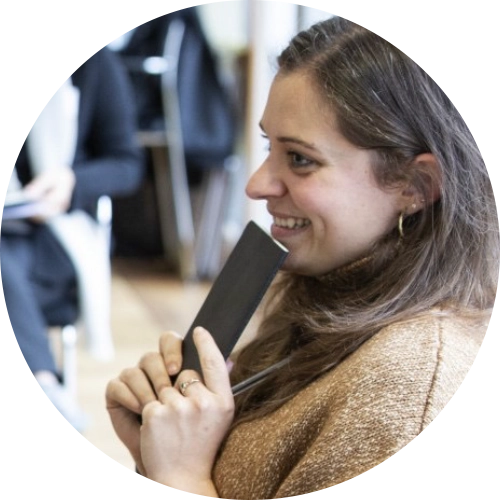
Federica Case
PhD Student, University of SurreyFederica Case (she/her) is a PhD candidate at the University of Surrey (UK) and she is part of the European Training Network G-VERSITY – Achieving Gender Diversity. She holds a Bachelor of Psychological Sciences from the University of Trieste (Italy) and a Master Degree in Psychology from the University of Trieste (Italy). Her PhD project investigates the underlying psychological processes of mentoring relationships, to define the key factors that help cultivate and promote a diversified workforce, and to provide effective guidelines applicable in working contexts. In her research, she is also interested in stereotyping, social perception and discrimination

Mary Ann Ciosk
Trieste University, PhD StudentMary Ann Ciosk is conducting her PhD research at Trieste University (Italy) in the intergroup relations and social cognition lab. Prior to starting her PhD, Mary Ann completed her BA Honours Specialization in Psychology at the University of Western Ontario (Canada), her MSc in Psychology at KU Leuven (Belgium), and a research internship at Trinity College Dublin (Ireland) in cognitive science. Her current research focuses on the subtle biases that perpetuate systemic discrimination. She investigates the conceptualization of intersecting social categories such as gender, race, and sexual orientation, and seeks to understand the underlying social and cognitive factors influencing them.

Janine Clayton
NIH Associate Director for Research on Women’s Health (TBC) Director, NIH Office of Research on Women's Health, NIHJanine Austin Clayton, M.D., FARVO, was appointed Associate Director for Research on Women's Health and Director of the Office of Research on Women's Health at the National Institutes of Health (NIH) in 2012. Dr. Clayton has strengthened NIH support for research on diseases, disorders, and conditions that affect women. She is the architect of the NIH policy requiring scientists to consider sex as a biological variable across the research spectrum, a part of NIH's initiative to enhance reproducibility, rigor, and transparency. As co-chair of the NIH Working Group on Women in Biomedical Careers with the NIH Director Dr. Clayton also leads NIH's efforts to advance women in science careers. In 2021, Dr. Clayton was elected to the Board of Directors of the American Association for the Advancement of Science (AAAS).

Imogen Coe
Professor, Diversity and Inclusion in SRC, NSERC Scholar in Residence, SRCDr. Imogen R. Coe is a professor of Chemistry and Biology at Toronto Metropolitan University (TMU) and an affiliate scientist at St. Michael's Hospital in Toronto. She is an active researcher and former academic leader, being the founding dean of the Faculty of Science at TMU. Dr. Coe is also an award-winning scholar-activist in Canada with respect to the integration of principles of inclusion, diversity, equity and accessibility (IDEA) into research cultures in science.
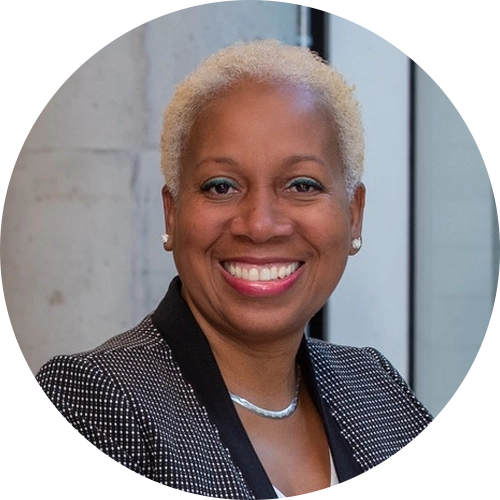
Juliet Daniel
Member of the CCA Expert Panel on EDI Practices for Impactful Change and Professor, Department of Biology, and the Associate Dean Research & External Relations, Faculty of Science, McMaster University, McMaster UniversityProfessor Juliet Daniel is a Cancer Biologist and the Associate Dean of Research and External Relations in the Faculty of Science at McMaster University. Prof. Daniel cloned and named a new transcription factor Kaiso that plays a crucial role in cancer and normal human development. Her team is also currently elucidating the molecular/genetic causes of the disparities in incidence and poor outcomes of triple negative breast cancer in Black women. In recognition of her research and community service, Prof. Daniel has received several awards including the inaugural Canadian Cancer Society Inclusive Excellence Award, an Honorary Doctor of Science from the University of the West Indies (UWI) Cave Hill, a UWI Vice Chancellor's Award, and a WXN Canada's Most Powerful Women: Top 100 Award among many others. Over the past 25 years, Professor Daniel has been a passionate advocate, mentor and role model for Women in Science and Engineering (WISE) and Black McMaster students and youth whose potential contributions to Science and Engineering have not been fully realized in Canada and beyond. In 2020, she co-founded the Canadian Black Scientists Network (CBSN).

Rhonda Davis
Head of the Office of Equity and Civil Rights (OECR), Office of the Director, US National Science FoundationRhonda Davis is Head of the Office of Diversity and Inclusion (ODI) in the Office of the Director at the National Science Foundation (NSF) where she is responsible for ensuring NSF's commitment to a diverse, inclusive, and discrimination-free environment for employees, beneficiaries and applicants for employment or services associated with the $8 billion budget that supports fundamental research and education across all fields of science and engineering. Recently, her efforts resulted in NSF being a trailblazer as one of the first federal agencies that require institutions it funds to notify the agency of any findings or determinations that an NSF-funded principal investigator or co-principal investigator committed harassment (including sexual harassment or sexual assault). Her work in this area has resulted in her testifying before Congress, serving on numerous panels both nationally and globally, including an embassy.

Jonathan Dawes
Professor, University of Bath, EPSRC Deputy Executive Chair, UK Research & Innovation (UKRI), University of BathJonathan Dawes is an applied mathematician and research leader with particular interests in mathematical biology, machine learning and complex systems. He is currently seconded to the UK's Engineering and Physical Sciences Research Council (EPSRC), part of UKRI, as Deputy Executive Chair. He was previously Co-founder, and Director (2015-2020) of the University of Bath's Institute for Mathematical Innovation which promotes research collaborations between the mathematical sciences, other disciplines and industry. IMI's scope and impact ranges from political science to orthopaedics.
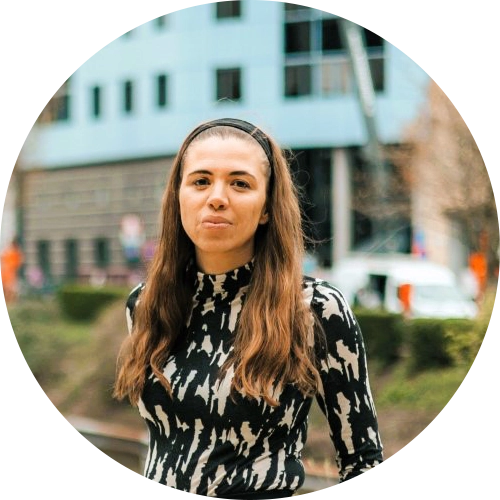
Petra Debusscher
Ghent Institute for International and European Studies (GIES)Dr. Petra Debusscher is researcher and lecturer at the Ghent Institute for International and European Studies (GIES) at The Department of Political Science of Ghent University. She has published widely in the area of EU gender and equality policies, intersectionality and gender mainstreaming. In addition to her academic work, Petra has extensive experience working as a gender expert for EU institutions, including the European Commission, the European Parliament’s FEMM Committee, the European Institute for Gender Equality and the European Institute of Innovation & Technology.

Mirit Eldor
Managing Director, Life Sciences Solutions, ElsevierMirit Eldor is Managing Director of Life Sciences Solutions. Elsevier's Life Sciences Solutions business serves pharmaceutical, biotech and life sciences companies around the world with trusted, data-led analytical insights that help research and development teams innovate effectively and efficiently using curated and validated scientific information. Mirit joined Elsevier in 2015, and previously led Strategy for Elsevier globally and served on the Executive Leadership Team. Prior to this role, she was Senior Vice President of Strategy for the Health & Commercial segments. Mirit led global growth strategies and helped grow the businesses into high-value areas, including advanced decision-support and analytics.
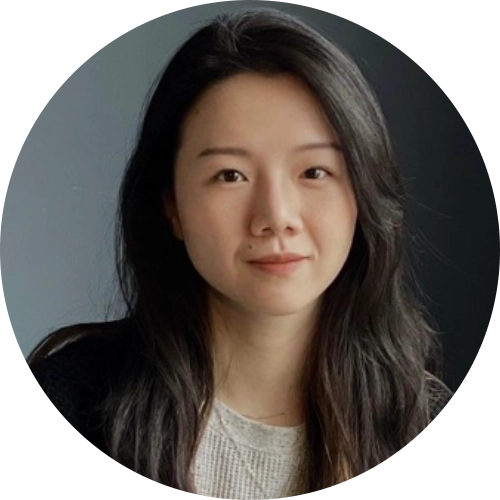
Yirou Fang
University of Helsinki, PhD StudentYirou Fang is a doctoral researcher coming from the background of developmental psychology, work psychology, and education. Holding a Bachelor's degree of Psychology from University of California, Irvine, and a Master's degree on Social Science from University of Chicago, her research interests have developed along the way and landed her at the intersection of gender study, work psychology, and developmental psychology. Currently pursuing a Ph.D. at the University of Helsinki, Finland, her work interrogates the complex interplays between gender roles, work characteristics, and occupational wellbeing outcomes such as job burnout and satisfaction. Driven by her passion in helping people of different genders thrive in the workplace, her work aims at unveiling the social and institutional causes of gender differences in occupational wellbeing and creating tailored workplace interventions accordingly.

Stephen M. Fiore
Pegasus Professor, Department of Philosophy and School and School of Modelling, Simulation, and Training, University of Central FloridaDr. Stephen M. Fiore is Director, Cognitive Sciences Laboratory, and Pegasus Professor with the University of Central Florida's Cognitive Sciences Program in the Department of Philosophy and School of Modeling, Simulation, and Training. He maintains a multidisciplinary research interest that incorporates aspects of the cognitive, social, organizational, and computational sciences in the investigation of learning and performance in individuals and teams. His primary area of research is the interdisciplinary study of complex collaborative cognition and the understanding of how humans interact socially and with technology. He is Past President of the International Network for the Science of Team Science, and Past President for the Interdisciplinary Network for Group Research, and currently serves on the leadership board of the Global Alliance for Inter- and Transdisciplinary Research.

Jasmine Fledderjohann
Senior Lecturer, University of LancasterDr. Jasmine Fledderjohann is a Senior Lecturer in Sociology at Lancaster University, where she is Principal Investigator on the Food Security for Equitable Futures project and Co-Investigator on the DigiAge project. Her recent work explores the consequences of food insecurity for reproductive justice globally. She has previously worked on how survey instruments construct the 'invisible infertile'—marginalised individuals whose infertility falls outside of the dominant reproductive imaginary of who can and 'should' reproduce. Her forthcoming paper (with fellow speaker Prof. Bran Knowles) at the ACM Conference on Fairness, Accountability, and Transparency introduces the concept of 'algorithmic reproductive justice', exploring how problematic trends in emerging digital technologies are producing reproductive injustices, particularly for multiply marginalised people.

Domiziana Francescon
Partnerships Director, Elsevier FoundationDomiziana Francescon serves as the Elsevier Foundation's Partnerships Director, where she works with partners around the world to establish collaborations that advance inclusive research and health – supporting the UN Sustainable Development Goals. She also serves as Program Director for Elsevier's corporate responsibility partnerships, especially focusing on sustainability and Inclusion & Diversity spaces. Additionally, Domiziana is the Co-Chair of the Eligibility team of Research4Life, a UN-publisher partnership to bridge access gaps for researchers and doctors in the Global South – and she is actively involved in marketing and fundraising initiatives for the partnership.

Ann Gabriel
Vice President for Global Strategic Networks, ElsevierAnn Gabriel is Senior Vice President for Global Strategic Networks at Elsevier. Ann and her team engage with key stakeholders across academia, government, funding bodies, and industry to further the mission of scientific, technical and medical publishing and to sustain and enhance the academic research enterprise. This includes establishment of strategic partnerships with institutions through the development of short and long term engagement programs exploring current and evolving issues in scholarly communication: AI, Open Science, and Societal Impact of Research. Over the course of her 30-year career Ann has held a variety of positions at the forefront of scholarly communication, including leadership roles as Elsevier's Publishing Director for journals in Computer Science and Engineering, as well as electronic product development roles with Elsevier's ScienceDirect, and integrative digital development at Cambridge University Press. She serves on the CHOR Inc. board. Ann has served as adjunct faculty at New York University. She holds a master's degree in communications from the University of Pennsylvania.
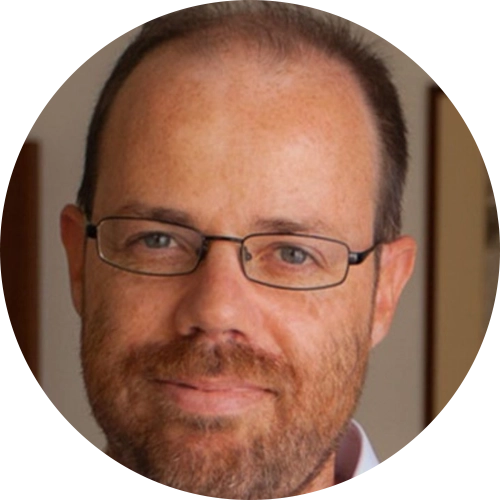
Miguel Goulão
EUGAIN WG2 co-leader, Nova School of Science and Technology, PortugalMiguel Goulão is an Associate Professor of the Informatics Department of NOVA School of Science and Technology (NOVA SST) and a researcher at NOVA LINCS. He has a Ph.D. (2008) in Informatics from NOVA SST. His primary research goals are to make software development more inclusive and to enhance software developers' productivity and experience. Miguel uses Empirical Software Engineering and User Experience evaluation techniques to identify the strengths and weaknesses of languages, tools, and approaches and propose improvements. Miguel is particularly interested in improving the understandability of Requirements Engineering and Domain-Specific Languages (and of specifications built with those languages), to empower developers and other stakeholders with varied skills to contribute more effectively to software development. Miguel co-chairs Working Group 2 of EUGAIN and has participated in other COST Actions and research projects. He is a regular contributor, as an author and as a reviewer, to top-level conferences and journals in Software Engineering.
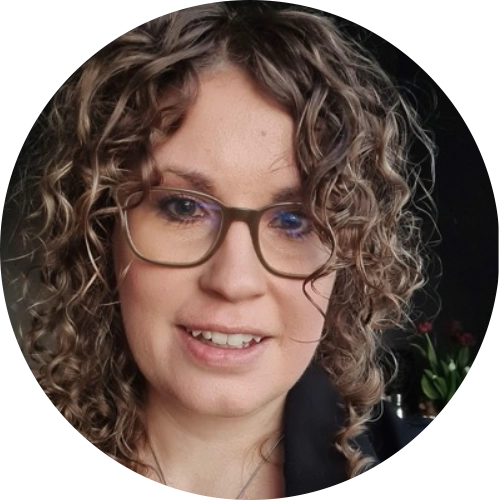
Tatjana Graf
Nijmegen School of Management at Radboud University, PhD StudentTatjana Graf holds a Bachelor's and Master's degree in Anthropology, Sociology and Gender Studies from the Ludwig-Maximilians-Universität in Munich, Germany. After gaining her first experience abroad during her studies, she decided to pursue her desire to make an academic contribution in the international field of gender studies and social justice and ventured abroad. Since then, she has been pursuing a PhD at the Nijmegen School of Management at Radboud University. There she is researching how networking, doing gender and gender inequality are intertwined. Doing so, she is particularly interested in adopting and promoting a critical power perspective, fostering equality.

Serena Haines
Serena Haines is a scholar specializing in the intricate realms of gender studies and psychology. Holding a Bachelor of Psychology (Honours) from Flinders University, Australia, and a Master of Science degree from the University of Bern, Switzerland, her academic journey has been propelled by an unwavering curiosity in understanding gender dynamics. Currently pursuing a Ph.D. at the Czech Academy of Sciences and Masaryk University, her research delves into the nuanced intersections of gender stereotypes, men and masculinities, and the intricate relationship between gender and language. With a commitment to unraveling societal constructs and fostering inclusivity, her work aims to illuminate and challenge prevailing norms through empirical inquiry and interdisciplinary collaboration.
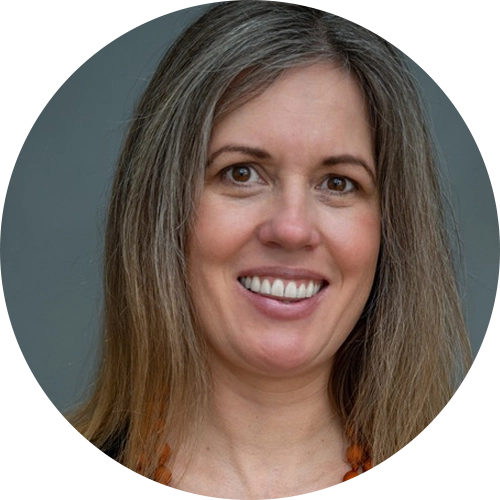
Alison Holder
Director, Equal MeasuresAlison Holder is Executive Director of Equal Measures 2030 (EM2030), a “global to local” coalition that connects data and evidence with advocacy and action on gender equality, to transform the lives of women and girls. The EM2030 coalition produces a flagship research product (the SDG Gender Index), supports advocates to build data skills and share learning, and uses its collective voice to push gender equality up the global policymaking agenda. Alison has 25 years experience in international development and the private sectors, including leading policy, advocacy and campaigning work on gender equality, economic justice, and corporate accountability.
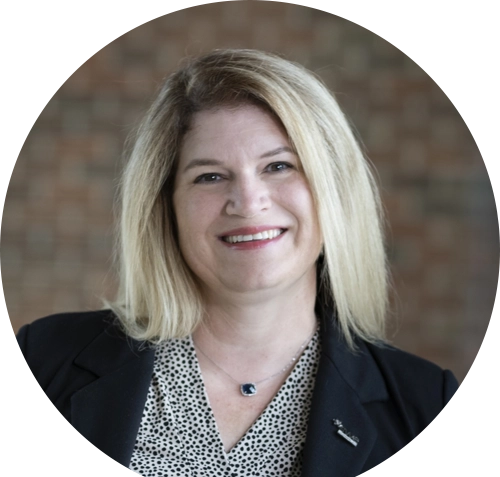
Beth Holloway
Senior Assistant Dean for Student Access and Success, Leah H. Jamieson Director of Women in Engineering, Professor of Engineering Practice, School of Mechanical Engineering, College of Engineering, Purdue UniversityBeth Holloway hold PhD in Engineering Education. She is an advocate for research-informed approaches to engineering education, equity, and policy, as well as student recruitment and retention efforts, with contributions nationally and at Purdue University. She is a Fellow of the American Society for Engineering Education (ASEE) and the Society of Women Engineers and has served on the Boards of Directors for both ASEE and the Women in Engineering ProActive Network (WEPAN). Holloway been recognized with numerous institutional and national awards for her work in supporting and developing engineering students.

Daniela Hombach
Federal Ministry of Education and Research, GermanyDaniela Hombach has an academic background in biology, computational genomics and philosophy of science with a focus on feminist and queer studies. At the German Federal Ministry of Education and Research, she is working on diversity in science and academia.

Richard Horton
Editor-in-Chief, The LancetDr Richard Horton is Editor-in-Chief of The Lancet. He joined The Lancet in 1990. In 2016, he chaired the Expert Group for the High Level Commission on Health Employment and Economic Growth, convened by Presidents Hollande of France and Zuma of South Africa. From 2011 to 2015, he was co-chair of the UN's independent Expert Review Group on Information and Accountability for Women's and Children's Health. In 2011, he was elected a Foreign Associate of the US Institute of Medicine and, in 2015, he received the Friendship Award from the Government of China. In 2019, he was awarded the WHO Director-General's Health Leaders Award for outstanding leadership in global health and the Roux Prize in recognition of innovation in the application of global health evidence. In 2021, he received the Physicians for Human Rights Award in recognition of extraordinary leadership in advancing health and human rights. He now works to develop the idea of planetary health – the health of human civilizations and the ecosystems on which they depend. In 2023, Dr Horton was awarded the Order of the British Empire (OBE) in recognition for services to Health and Medical Journalism.

Lilian Hunt
Lead Equality, Diversity & Inclusion in Science and Health (EDIS), WellcomeLilian Hunt leads the Wellcome Equity, Diversity and Inclusion (EDIS) team. Lilian has represented EDIS on the National Institute for Health Research's INVOLVE Diversity and Inclusion working group, with a focus on inclusive patient and public involvement in health research. Lilian has spoken extensively on the topics of diversity and inclusion in science and health research to a variety of audiences, notably for the Science Museum, the Social Innovation Exchange, as part of the UN's He for She Arts Week, and the World Science Forum in 2022. Lilian manages the EDIS programme of work including coordinating the coalition, supporting its members, developing its strategy and delivering events and projects. Lilian received PhD in Genetics from UCL whilst at The Francis Crick Institute.
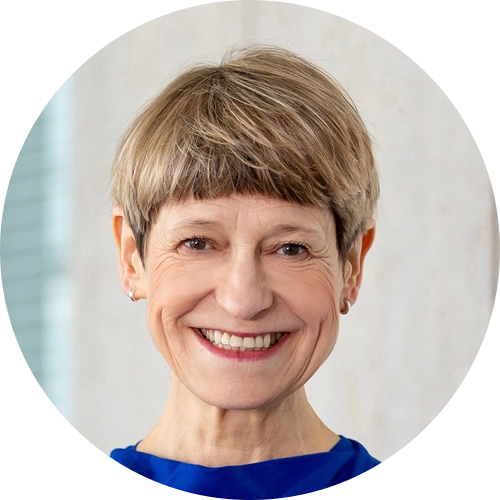
Angela Ittel
President of Technische Universität Braunschweig, Germany; Co-President of TU9-Alliance and Vice President of the German Rectors Conference (HRK), University of BrunswickProf. Dr. Angela Ittel has been President of Technische Universität Braunschweig since 1 July 2021. On November 14, 2023, she was elected as a member of the Executive Board of the German Rectors' Conference with a focus on "International, Equality, Diversity. Psychologist Angela Ittel is an acknowledged expert in strategic university development, institutional cooperation, interdisciplinary research associations and conditions of the academic qualification phase, staff development, internationalisation, as well as equal opportunities and diversity as strategic institutional development tools.
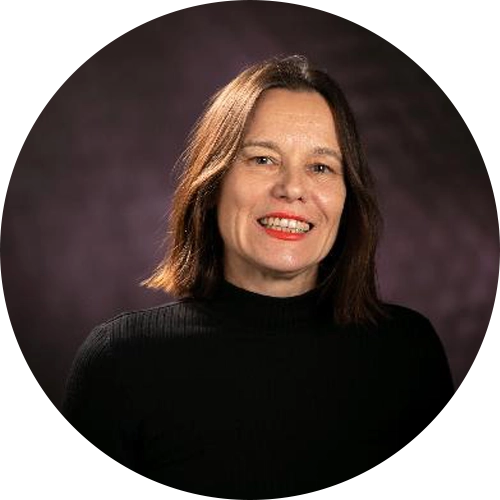
Letizia Jaccheri
EUGAIN Chair & Norwegian University of Science and Technology, NTNU, NorwayLetizia Jaccheri (Ph.D. from Politecnico di Torino, Italy) is Professor at NTNU's Department of Computer Science. Her research activities are related to software engineering at the intersection between art and inclusion. She leads the COST Action CA19122 European Network For Gender Balance in Informatics (EUGAIN) with more than two hundred participants from forty European countries. Jaccheri has been teaching courses in software engineering at various levels and acted as one of the independent directors of Reply S.p.A., the largest Italian IT company with 9059 employees. From 2013 to 2017 she was department head for the Computer Science department at NTNU. She is ACM Distinguished speaker.
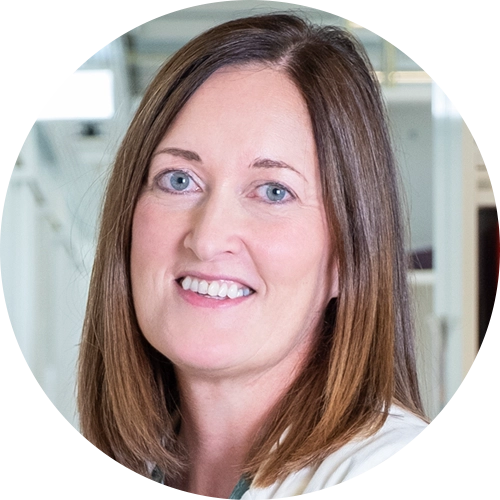
Johanna Joyce
Professor, University of Lausanne, University of LausanneJohanna Joyce is a Professor of Oncology at the University of Lausanne, Switzerland, and Full Member of the international Ludwig Institute for Cancer Research. Johanna received her Ph.D. from the University of Cambridge, UK. She did her postdoc at University of California San Francisco, USA, joining as faculty member the Memorial Sloan Kettering Cancer Center, New York, USA. She was awarded tenure at MSKCC in 2014, and moved to Switzerland in 2016. She serves on numerous boards and committees, including the AACR Women in Cancer Research Council (2020-2023), and has been recognised through a series of prestigious awards including the Pezcoller-EACR Award for Women in Cancer Research (2023). Johanna is a committed mentor, advisor, and sponsor to many young researchers and a widely recognised advocate, including for women in cancer research
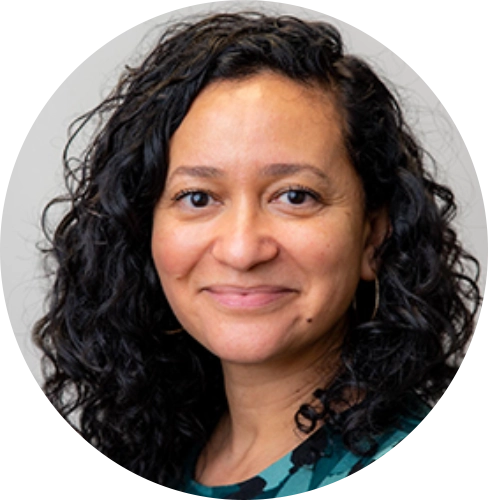
Angela Kaida
Scientific Director of Canadian Institutes of Health Research (CIHR) Institute of Gender and Health; Professor, Faculty of Health Sciences, Simon Fraser University, Vancouver, Canada, Institute of Gender and Health at the Canadian Institutes of Health ResearchDr. Angela Kaida is an epidemiologist and community-based researcher at Simon Fraser University where she is an SFU Distinguished Professor in the Faculty of Health Sciences and the former Canada Research Chair in Global Perspectives on HIV and Sexual and Reproductive Health. In 2023, she was appointed Scientific Director of the Institute of Gender and Health at the Canadian Institutes of Health Research (CIHR).
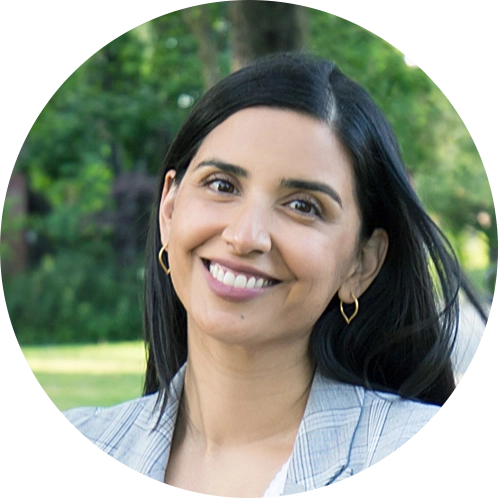
Sonia Kang
Academic Director, Institute for Gender and the Economy (GATE), Canada Research Chair in Identity, Diversity, and Inclusion, Professor of Organizational Behaviour and Human Resources Management, University of Toronto, Institute for Gender and the Economy (GATE), CanadaDr. Kang's research harnesses the power of behavioral insights and organizational design to disrupt systems, processes, and structures that block the path toward equity, diversity, and inclusion (EDI) for individuals, organizations, and society. Some of her recent research themes include EDI in STEM and medicine; using choice architecture to eliminate the gender gap in competition; and the decision to reveal or conceal race and gender cues when navigating the labor market.
Maria Karaulova
Researcher, Fraunhofer Competence Center for Innovation and Knowledge Economics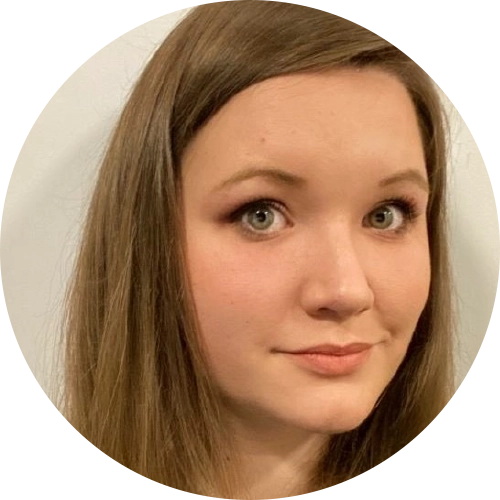
Andrea Kočiš
Ph.D. Student, University of SurreyAndrea Kočiš is currently pursuing a Ph.D. at the University of Surrey in the United Kingdom and she is a part of the European Training Network G-VERSITY – Achieving Gender Diversity. She holds a Bachelor of Psychology and a Master of Research Psychology degree from the University of Belgrade, Serbia. The central theme of her research focuses on the processes by which children develop their comprehension of the social world, with a specific focus on the role that parents play in shaping this understanding. Her current research project focuses on parents' gender biases, parent-child conversations, and gendering pathways towards careers

Petra Kynclova
UNCTADPetra Kynclova is a Statistician currently assigned with the UNCTAD Statistics, where she contributes to various projects with particular interest in measuring inclusiveness and sustainability of global trade. Before joining UNCTAD, she worked at the UNIDO Statistics Division, where she played a key role in developing the global monitoring indicator framework for SDG-9, emphasizing sustainable industrialization. She holds a Ph.D. in Technical Mathematics from the Vienna University of Technology in Austria.

Monica Landoni
Adjunct Professor, Università della Svizzera italianaMonica Landoni, is a professor at the Faculty of Informatics where she leads the Laboratory of User Experience, Interaction & Accessibility (LUXIA). She holds a PhD in Computing and Information Sciences, University of Strathclyde. She has been involved in a number of projects, including the JISC Project "EBONI", Electronic Books ON-screen Interface, EU Projects: STAMP, PENG, REVEAL-THIS and PuppyIR. Together with SNSF sponsored: SOL, TADAA, BEST, DEDUCE, HEBE, and Hasler funded PADS. She co-chairs the WG1 of the EUGAIN COST ACTION - European Network for gender balance in Informatics. Her research interests lie mainly in the field of Human Computer Interaction with particular attention to understudied user groups as children and people with cognitive and intellectual disabilities.
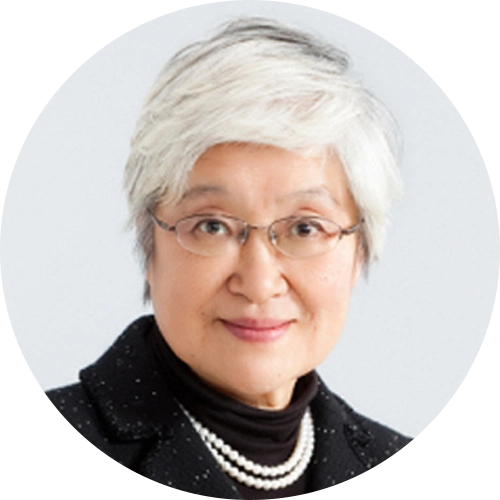
Heisook Lee
President, Centre for Gendered Innovation in Science and Technology Research, South KoreaHeisook Lee, the President of GISTeR established to contribute to national science and technology innovation by maximizing inclusive research and innovation for both men and women by integrating gender dimension in R&D. Having co-organized both Gender Summit Asia Pacific in 2015 and Gender Summit Global for SDGs in 2020 held in Seoul, Korea, she has devoted her career to empowering women and girls in the STEM fields since 1980 as a professor of Mathematics, Ewha Womans university and as the founding president of Center of WISET (Women in Science, Engineering and Technology). The first Returnee Program for career interrupted Women and mentoring program for female students in STEM of WISET have developed to national HRD programs for women in STEM. Professor Lee’s current interests include gender and artificial intelligence (AI) for inclusive growth and policy development of disseminating gendered innovations for better science research. She received B.S. and Ph.D. degrees in Mathematics from Ewha Womans University, the University of British Columbia and Queen’s University, Canada. Professor Lee contributed to national science & technology innovations as a member of the Presidential Advisory Council on Science & Technology and member of the National Science & Technology Commission. She also served the chief Editor of the Journal of the Korean Mathematical Society.
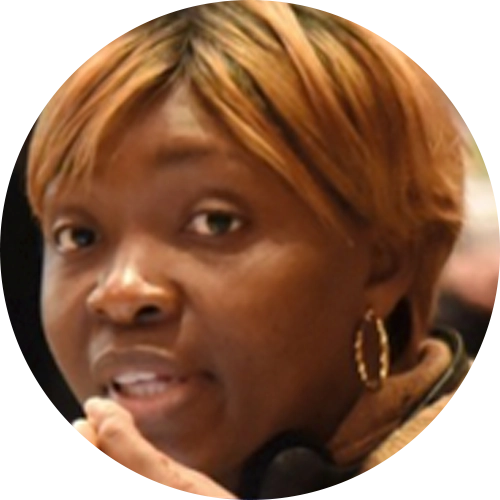
Ouattara Lhaur-Yaigaiba Annette
Maitre-Assistante, Enseignante-Chercheure, Université Nangui ABROGOUA (Abidjan, Côte d'Ivoire)Dre Ouattara Lhaur-Yaigaiba Annette est titulaire d'un Doctorat en Sociologie spécialité. Elle est Maitre-Assistante, Enseignante-Chercheure à l'Université Nangui ABROGOUA (Abidjan, Côte d'Ivoire) et Chercheure associée au Centre Suisse de Recherches Scientifiques en Côte d'Ivoire. Depuis 2008, elle travaille au Programme d'Appui Stratégique à la Recherche Scientifique (PASRES) en Côte d'Ivoire où elle a occupé les fonctions d'Assistante du Secrétaire Exécutif puis celle de Responsable du Renforcement des capacités et du Partenariat. Elle est Rédacteur en Chef de la Revue RSS PASRES (Revue en Sciences Sociales du PASRES). Annette OUATTARA est également Coordonnateur au sein de l'Initiative des Organismes Subventionnaires de la Recherche Scientifique en anglais Science Granting Council Initiative pour le compte de la Côte d'Ivoire depuis 2015. Elle est aussi Membre du Groupe Exécutif d'Appui du Conseil d'Administration du Conseil Mondial de la Recherche (Global Research Council) depuis 2019 où elle représente, avec l'Afrique du Sud la région de l'Afrique subsaharienne. Elle occupe depuis 2021 le poste de Directrice Etudes, Renforcement de Capacités et Partenariat au sein du Fonds pour la Science la Technologie et l'Innovation (FONSTI).
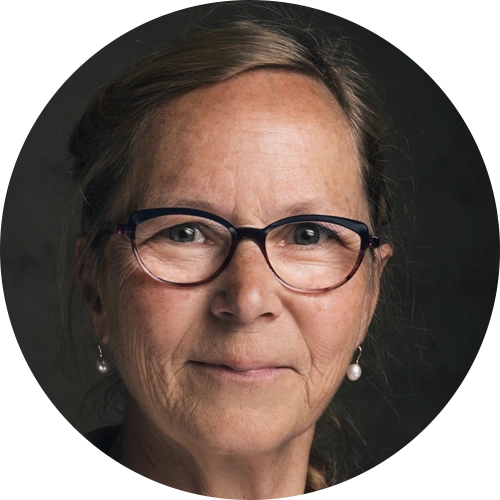
Astrid Linder
Professor at the Swedish National Road and Transport Research Institute (VTI) and Adjunct Professor at Chalmers University, Swedish National Road and Transport Research Institute (VTI)Astrid Linder is Professor of Traffic Safety at Swedish National Road and Transport Research Institute, VTI, and an Adjunct Professor of Injury Prevention at Chalmers University. She received her PhD in traffic safety from Chalmers from where she also has a MSc in Engineering Physics. Traffic safety, models of the human in crash testing, injury prevention and crash related countermeasures are main fields of her research. Prof Linder initiated and led the research resulting in the world’s first physical dummy model based on the average female, the Seat Evaluation Tool (SET 50F) for assessment of the vehicle occupant safety and was listed as one of 100 most inspiring and influential women from around the world for 2023 by BBC.

Deborah Logan
Publishing Director, Elsevier Energy & Earth Science JournalsDeborah Logan is Publishing Director for Elsevier’s Energy & Earth journals’ programme, which is the largest global publishing programme in the energy and earth sciences, and which includes many flagship titles publishing world-class content. In recent years, Deborah has focused on introducing a strong inclusion and diversity commitment across the portfolio; building networks and partnerships with researchers in the Global South; and championing a focus on content and activities around the clean energy transition. Deborah is based in Paris and has been working with Elsevier since 2006.
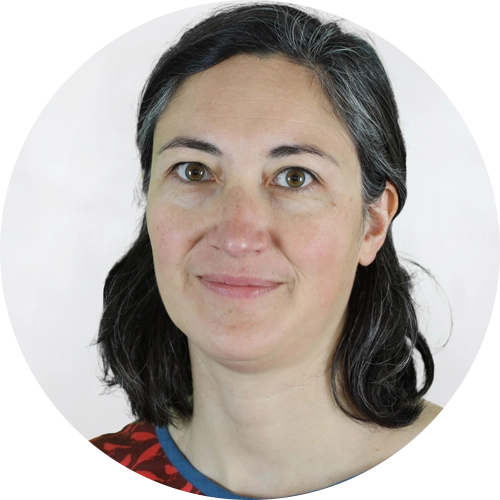
Jasmine Lorenzini
Swiss National Science FoundationJasmine Lorenzini is responsible for implementing the SNFS's policy on equality, diversity, and inclusion. This includes managing the AcademiaNet database of excellent women researchers. She holds a Ph.D. in political science from the University of Geneva.
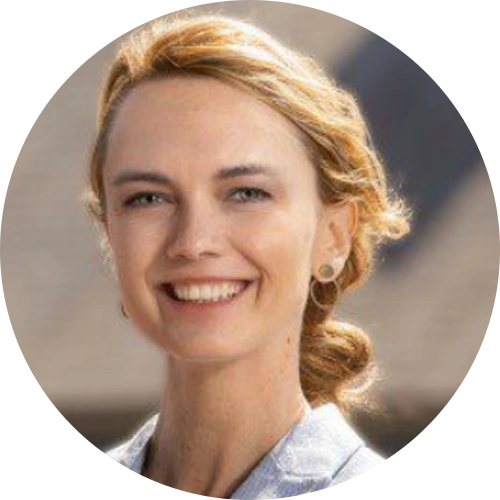
Genevieve Macfarlane Smith
Founding Co-Director, Responsible & Equitable AI Initiative, UC Berkeley AI Research Lab & Professional Faculty, UC Berkeley Haas School of Business, UC Berkeley's Haas School of BusinessGenevieve Mcfarlane-Smith is the founding co-director of the Responsible & Equitable AI Initiative at the UC Berkeley Artificial Intelligence Research Lab (BAIR) and serves as a professional faculty member at Haas on responsible AI. She leads research partnerships and projects with leading tech firms on topics of responsible innovation and AI with companies such as Google and Meta. She is also the Gender & AI Fellow at the US Agency for International Development, a research affiliate at the Minderoo Centre for Technology & Democracy at Cambridge University, and a research affiliate at the Technology & Management Centre for Development at Oxford. Prior to working at UC Berkeley, she worked with the UN Foundation, UN Women, and the International Center for Research on Women conducting research and leading projects on inclusive and equitable technology.

Rasika Mahajan
Nijmegen School of Management,Radboud University, PhD StudentRasika Mahajan is a PhD candidate at Nijmegen School of Management, Radboud University, Netherlands and she is a part of the European Training Network G-VERSITY – Achieving Gender Diversity. She holds a Bachelor of Engineering degree from Mumbai University, India, Master of Business and Bachelor of Commerce (Honours) from Monash University, Australia. Her current research focuses on making gender diversity training more inclusive in order to foster social equality within organisations. Her main areas of interest are diversity and equality within organsiations, postcolonial feminism, intersectional feminism.

David Mellor
Director of Policy, Centre for Open ScienceDavid Mellor is the Director of Policy at the Center for Open Science (COS). In that role, he oversees and implements strategies to align scientific ideals with actual policies in publishing and funding. The mission of COS is to reform the process of science that too often hinders the transparency and reproducibility of research outcomes. To achieve this goal, Dr. Mellor works with funders, publishers, and researchers to adopt the Transparency and Openness Promotion (TOP) Guidelines, which include data sharing, comprehensive reporting, and registering empirical research to address biases in analysis and reporting. Dr. Mellor received his degree in Ecology and Evolution from Rutgers University and has research experience in behavioral ecology, citizen science, and meta-science.

Jovana Mihajlović Trbovc
Senior Researcher, Research Centre of the Slovenian Academy of Sciences and Arts, Slovenia
Hildegalda Mushi
Manager for the Social Sciences Section, in the Directorate of Research Coordination and Promotion (DRCP), COSTECHHildegalda Mushi is a Manager for the Social Sciences Section, in the Directorate of Research Coordination and Promotion (DRCP), COSTECH. The Section is responsible for steering Research coordinating and promoting the culture of “Evidence based policy making” through processing and dissemination of research and innovation products to stakeholders. Hildegalda is a social scientist (Sociology, Gender & Policy analysis) by training; with over 15 years' experience in systems analysis and coordination, primary in social service sectors. She represents COSTECH in Tanzania's national group of experts for “Generation Equality Forum” and also institutional team lead for Gender Equality and Inclusivity Project (GEI) project under SGCI.

Sri Devi Narasimhan
Deputy Editor, CellSri Narasimhan is Deputy Editor at the journal Cell. She trained as a microbiologist and molecular geneticist at the National University of Singapore, University of Massachusetts Medical School and Harvard Medical School. She joined Cell Press as an assistant editor at the flagship journal Cell in 2012 and, ever since, has been mesmerized by the daily opportunities to learn across scientific disciplines. Sri leads the journal's strategy and cross-journal communication with other Cell Press journals and has been responsible for overseeing microbiology, immunology and metabolism content in recent years. While connected to her South Indian roots, her exposure to different countries, languages, and cultures has shaped her passion for diversity and gender equity in science. Consequently Sri has led her team in efforts to diversify their reviewer, author and reader engagement. Sri loves interacting with the broader community, especially early-career researchers and trainees, and believes it is never too early to talk about science or ideas.
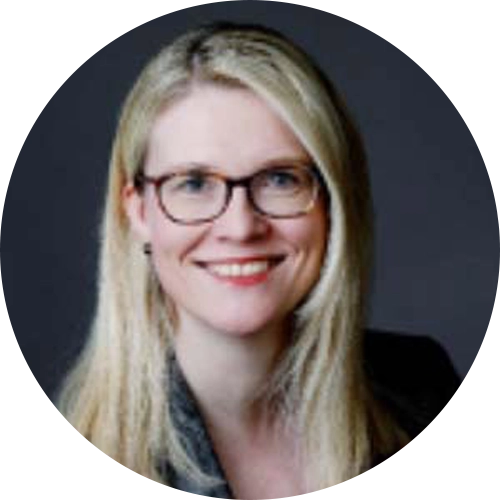
Sonja Ochsenfeld-Repp
Head of the Division Research Culture, German Research Foundation (DFG)Since July 2018 she is Head of the Division “Equal Opportunities, Research Integrity and Cross-Programme Development”, German Research Foundation. Before she has been Deputy Head of Division “Quality and Programme Management” (2016-2018). Her focus is on the promotion of equity, diversity and inclusion, safeguarding good research practice and international cooperation. From 2012 to 2015 she was Deputy Director of the European Liaison Office of the German Research Organisations (Kowi) and Head of the Bonn office. She was coordinator of the KoWi-Part of the National Contact Point for the European Research Council (ERC). She is a fully qualified lawyer by training and has been awarded a doctoral degree from the University of Bonn in 2007. She has participated as a speaker or chair in many national, European and international conferences.

Lorena Pajares
International consultant and senior researcher on gender and development, NOTUS, Spain
Rachel Palmén
Senior Researcher, Internet Interdisciplinary Institute (IN3 – UOC), BarcelonaDr Rachel Palmén is a Senior Researcher at the Internet Interdisciplinary Institute (IN3 – UOC) in Barcelona, Spain where she forms part of the Gender and ICT research program. Her current research interests include gender equality and science – specifically looking at the implementation of inclusive gender equality plans and policies from an intersectional perspective. She has worked on various different European Commission funded projects in the realm of gender and science. She formed part of the EFFORTi project which developed an evaluation framework for promoting gender equality in R&I and as part of this work she co-ordinated 19 case studies of gender equality interventions in R&I throughout Europe. TARGET, which supported institutional transformation in RPOs, RFOs and a network of higher education engineering schools in the Mediterranean – the findings of which are available in the book she co-edited, 'A Reflexive Approach to Structural Change'. She also formed part of the ACT-on-Gender project, which established 8 communities of practice for advancing gender equality in research and innovation – the findings of which are charted in the book she co- edited “A Community of Practice Approach to Improving Gender Equality in Research”. She also took part in the FP7 GenPORT project. She is currently coordinator of INSPIRE: The European Centre of Excellence on Inclusive Gender Equality in Research and Innovation. This is a Horizon Europe project for 5 million euros over 4 years with 14 partners in Europe and Latin America.
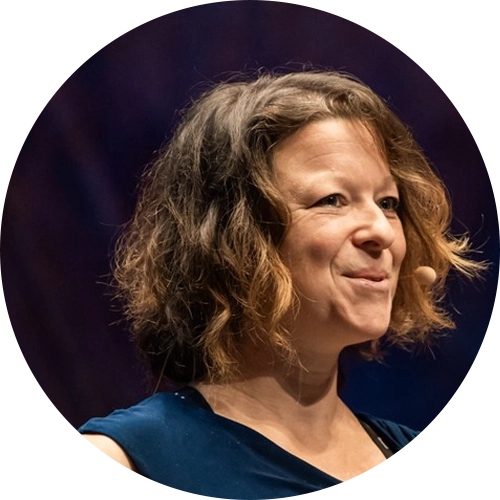
Birgit Penzenstadler
EUGAIN WG4&5 co-leader, Chalmers University of Technology, SwedenBirgit Penzenstadler is an Associate Professor at the joint Department of Computer Science and Engineering at Chalmers University of Technology and Gothenburg University, Sweden, as well as an Adjunct Professor at the Lappeenranta University of Technology, Finland. She has been investigating wellbeing, resilience, and sustainability from a point of view of software engineering during the past ten years, working on a body of knowledge and concepts of how to support sustainability from within RE. Part of these efforts are documented with the Karlskrona Alliance that published a body of work including the Karlskrona Manifesto. She included the topic into the curriculum of her departments at various universities along the way (Technical University of Munich, University of California, Irvine, California State University Long Beach, Chalmers Technical University) and established industrial collaborations for case studies.

Thashni Pillay
Global Research Council Equality, Diversity and Inclusivity Working Group and the National Research Foundation, South AfricaThashi Pillay is the Acting Director and Director in Grants Management and Systems Administration at the National Research Foundation (NRF), South Arica. She has worked at the NRF for the last fifteen years, before which she worked at the CSIR. She holds a Masters degree in Sociology and is busy with a doctoral degree in Business Leadership. Thashni is the African regional co-chair of the Global Research Council (GRC) working group on Equity, diversity, and inclusiveness (EDI). Her focus is on the next-generation and emerging researchers programmes, although she has extensive experience in research management and system administration.

Juncal Plazaola-Castano
Policy Specialist, Violence against Women Data, UN WomenJuncal Plazaola-Castaño is the Policy Specialist on Violence against Women Data in the UN Women Ending Violence against Women section in New York. Prior to joining the UN, she worked as a public health researcher in Spain, her home country, where she participated in a number of quantitative and qualitative studies on intimate partner violence, and was part of the team who coordinated the development of the Spanish National Protocol for a Healthcare Response to Gender-Based Violence.

Clara Plückelmann
PhD Student, Stockholm UniversityClara Plückelmann (she/her) is currently pursuing her PhD at Stockholm University as part of the European Training Network G-VERSITY. She holds a Bachelor of Science in Psychology from the University of Groningen (The Netherlands) and a joint Master degree in Cross-Cultural and Organizational Psychology from the University of Social Sciences and Humanities (Poland), University Institute Lisbon (Portugal), and Koç University (Türkiye). Her research focuses on examining the decision-making processes of women and men within organizational contexts and understanding how their inclusion in decision-making impacts their career development, aiming to contribute to achieving gender equality in organizations.
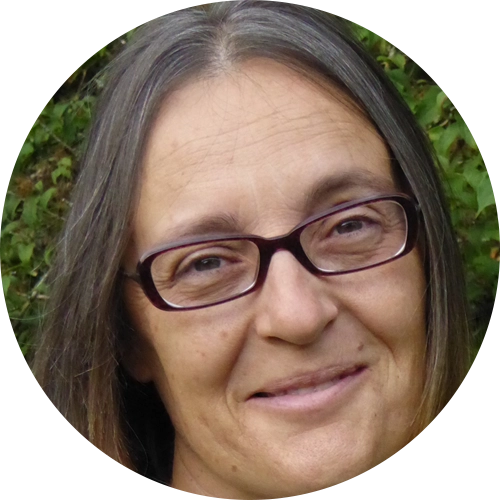
Francesca Primas
Full Astronomer and Project Scientist, European Southern ObservatoryFull Astronomer at the European Southern Observatory, the intergovernmental organisation for ground-based astronomy. Francesca started her career in Italy, then moved to the USA before joining ESO, where she has held different positions, from Support Astronomer to Department Head, Faculty Chair and Project Scientist. She is now responsible for the peer-review committee evaluating telescopes time requests. She chaired various EDI working groups, participated to the ISC Gender Gap project, and recently produced the Astro Voices videos and was awarded the inaugural ASP Nancy Grace Roman Award.
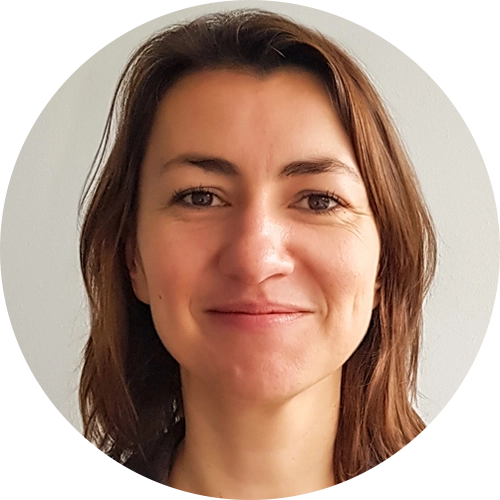
Eva Reichwein
Deputy Head of the Division Research Culture, German Research Foundation (DFG)Dr Reichwein has been working at the DFG Head Office in Bonn since 2009. She is head of the team “Equal Opportunities” within the group Research Culture. In this capacity, she is responsible for the DFG’s Research-Oriented Equity and Diversity Standards as well as the DFG’s Equal Opportunities and Diversity Concept. She is member of the EDI Working Group of the Global Research Council (GRC) and of the EDI Task Force of Science Europe.

Brian Rubineau
Associate Professor and Area Coordinator, Organizational Behaviour, , Desautels Faculty of Management McGill UniversityBrian Rubineau is an Associate Professor of Organizational Behavior at the Desautels Faculty of Management at McGill University. His research investigates how informal social dynamics contribute to inequalities in occupations, organizations, and labor markets. His research appears in management and sociology journals and has influenced organizations' use of word-of-mouth recruiting in support of their diversity goals. He is the recipient of multiple competitive research grants from both US and Canadian funding agencies.

Arn Sauer
Director, Federal Foundation for Gender EqualityArn Sauer is a co-director at the Feder Equality Agency. He holds a Doctorate in Transdisciplinary Gender Studies. Previously he was research associate for gender mainstreaming at the Federal Environment Agency. His experience covers social justice and diversity, gender mainstreaming, equality governance, impact research, gender and diversity in impact assessment procedures, anti-discrimination, and human rights with a focus on gender, sexual orientation, and gender identity.

Franziska Saxler
PhD Student,Franziska Saxler holds a Bachelor's degree in Psychology and Business Psychology as well as a Master's degree in clinical and social Psychology. She is currently working on her doctoral thesis. As part of the G-VERSITY Training Network, her research focuses on the mechanisms and consequences of sexual harassment in the workplace and intercultural gender studies.The aim of her work is to uncover the mechanisms of toxic work environments so that the targeted and already underrepresented groups can feel secure enough to pursue their career ambitions.

Maike Scharp
Gates FoundationDr. Maike Scharp is a Deputy Director in the Foundation Strategy Office at the Bill & Melinda Gates Foundation (BMGF), where she supports teams in their strategy development and execution. She is also the co-chair for the Innovation Equity Forum (IEF), a collaborative partnership sponsored by BMGF and the US National Institutes of Health with over 250 women’s health experts and stakeholders across diverse sectors and geographies. Prior, Maike was a Partner at the Boston Consulting Group and worked as a physician in radio-oncology. Maike holds a Dr.med. from Heidelberg University as well as a MScPH from the London School of Hygiene and Tropical Medicine.
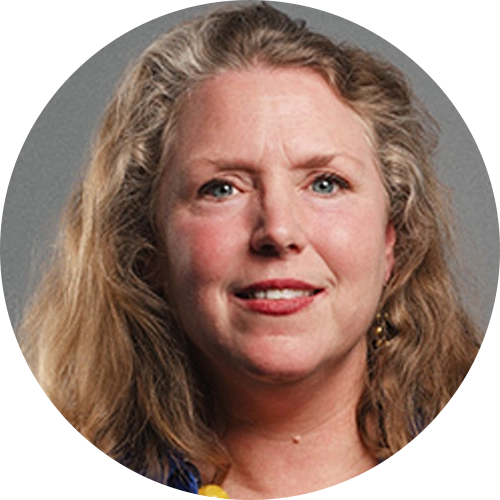
Ylann Schemm
CEO, Elsevier FoundationAs the Elsevier Foundation's Director, Ylann Schemm drives inclusive health and research partnerships to support the UN Sustainable Development Goals building research capacity in developing countries and tackling health inequities. She has been an integral part of the Foundation's growth since joining in 2008. In addition, Ylann is Elsevier's VP of Corporate Responsibility, building on two decades of corporate relations and responsibility roles which focus on gender, 'sound science' and sustainability collaborations. Since 2015, she has served as the Co-Chair of Elsevier's Gender Equity Taskforce which shapes Elsevier's contributions to inclusive research from gender balance in editorial boards to sex and gender analysis in Research. From June 2020- June 2022, Ylann was also served as the Chair of Research4Life's Executive Council, a UN-publisher partnership to bridge access gaps for researchers and doctors in developing countries. Prior to joining Elsevier in 2005, Ylann held various roles in publishing and the non-profit sector, representing the European Platform for Dutch Education at the European Commission. She started her career as a writer and researcher for Time Life Books and holds an MA in Film & Television Studies from the University of Amsterdam and a BA, magna cum laude in English from Amherst College in Massachusetts.

Martina Schraudner
Founder and Scientific Director of Fraunhofer Centre for Responsible Research and Innovation, Fraunhofer and Professor at Technical University Berlin, Fraunhofer Centre for Responsible Research and InnovationProf. Dr. Martina Schraudner heads the Center for Responsible Research and Innovation of the Fraunhofer IAO and has been on the board of acatech- Deutsche Akademie der Technikwissenschaften e.V. since January 2018. After studying biology and biotechnology and obtaining her doctorate at the Technical University of Munich, she held various positions at the gsf München, the ETH Zurich and the Forschungszentrum Jülich (FZJ) since 1993. Starting in 2001, she was initially involved in the research planning of the Fraunhofer headquarter. Since 2008, she has developed and established the Center for Responsible Research in Innovation. Prof. Dr. Martina Schraudner heads the department "Gender and Diversity in Technology and Product Development" at the Technical University of Berlin. She is active in national and international selection committees for application-oriented research and innovation projects, among others for the expert group "Structural Change" of the EU and the Advisory Board for Gender and Inclusion of Elsevier. Furthermore she is a member of several University Councils (Paderborn, Landshut) and of the Board of the Competence Centre for Technik-Diversity-Chancengleichheit e.V. She is also currently a member of the BMBF's Future Circle and the Caritas Social Commission.

Andrew Schroeder
Professor of Philosophy and Associate Dean, Claremont McKenna CollegeAndrew Schroeder is an ethicist and philosopher of science. His current research explores methodological decisions scientists make that can’t be resolved empirically, such as how to define concepts, which aspects of a system to model, how to set error tolerances, or how to statistically represent results. He aims to produce a set of guidelines scientists could employ when making such decisions. Schroeder is currently Professor of Philosophy at Claremont McKenna College, where he also serves as Associate Dean of the Faculty.
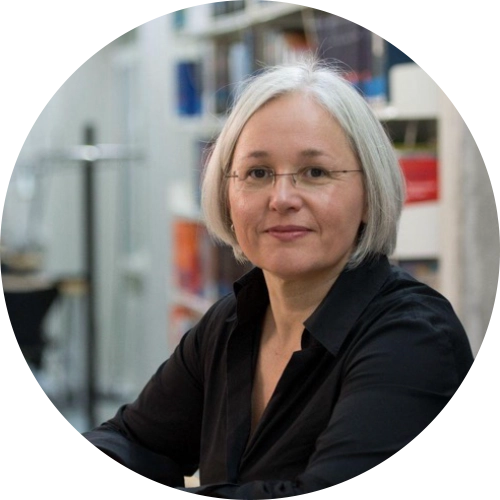
Sabine Sczesny
Coordinator, Professor of Social Psychology, Institute of Psychology, University of BernSabine Sczesny is a professor of social psychology at the University of Bern, Switzerland. She coordinated the Innovative Training Network on Language, Cognition, & Gender (ITN LCG; 2009-2013) and since 2020 she is coordinating the European Training Network G-VERSITY-Promoting Gender Diversity, both funded by the European Commission. In her research she focuses on various causes and consequences of stereotypes and prejudice. Her projects examine, for instance, effects of media news about immigrants on attitudes towards immigrants, women's physiological stress reactions when striving for leadership, and age and gender biases in personnel selection (e.g., triggered by age cues in faces or androcentric language).
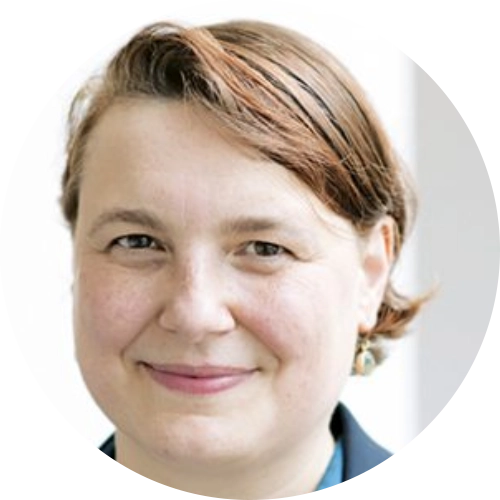
Gertraud Stadler
Head of Gender and Diversity Research, Charite University of MedicineProf. Dr. Gertraud Stadler is a psychologist and professor of gender-sensitive prevention research at Charité – Universitätsmedizin Berlin. Her central interest is personalized prevention interventions and the question of how individuals and couples can change their everyday behaviour in order to stay healthy for a lifetime and find better dealing with diseases.

Cassidy Sugimoto
Professor, Tom and Marie Patton School Chair in the School of Public Policy, Georgia Institute of Technology, Atlanta, USADr. Cassidy R. Sugimoto is Professor and Tom and Marie Patton School Chair in the School of Public Policy at Georgia Institute of Technology. Her research examines the formal and informal ways in which knowledge is produced, disseminated, consumed, and supported, with an emphasis on issues of diversity, equity, and inclusion. Sugimoto was a professor of Informatics in the School of Informatics, Computing, and Engineering at Indiana University Bloomington from 2010-2021 and served as the Program Director for the Science of Science and Innovation Policy program at the National Science Foundation from 2018-2020. She has received the Indiana University Trustees Teaching award (2014), a national service award from the Association for Information Science and Technology (2009), and a Bicentennial Award for service from Indiana University (2020). She holds a bachelor's in Music Performance, a master's in Library Science, and a doctoral degree in Information and Library Science all from the University of North Carolina at Chapel Hill.
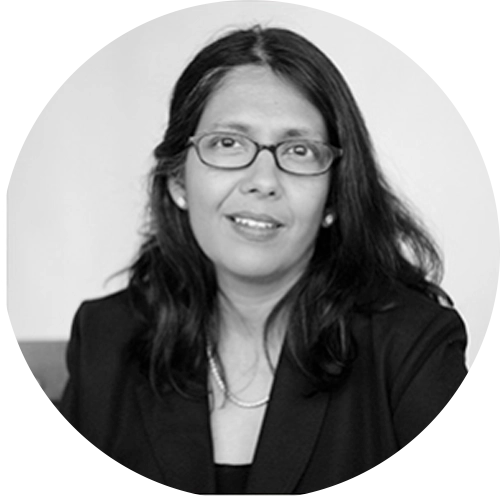
Sowmya Swaminathan
Director, DEI, Research at Springer Nature and a member of Springer Nature's DEI Council, Springer NatureDr. Sowmya Swaminathan (she/her) is Director, DEI, Research at Springer Nature and a member of Springer Nature's DEI Council. She leads Springer Nature's efforts to bring a diversity, equity, and inclusion lens to research publishing activities across the journals and books publishing programme. She was previously Head of Editorial Policy & Research Integrity for Nature Portfolio where she was responsible for policies and initiatives that advance transparency, integrity, open research practices and inclusion in scholarly publishing. She began her career in scholarly publishing as an editor at Nature Cell Biology where she subsequently served as Chief Editor for 6 years. Prior to entering scholarly publishing, Sowmya completed her PhD at the University of Chicago and carried out postdoctoral training at the Max Planck Institute for Biochemistry in Martinsried, Germany.
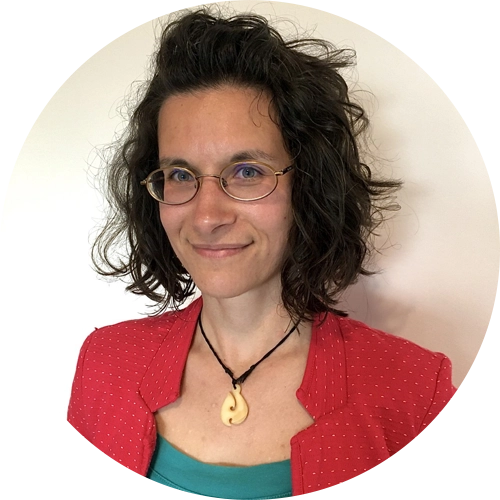
Anna Szlavi
EUGAIN YRI Coordinator, Norwegian University of Science and Technology – NTNU, NorwayAnna Szlavi, EUGAIN's Young Researcher and Innovators Coordinator, is a postdoctoral researcher at the Norwegian University of Science and Technology in Trondheim, Norway. Her research focuses on gender balance and intersectionality in computing, bringing together social sciences and computer sciences. As Work Package Leader in Erasmus+ project Women STEM Up, she researches challenges in computing education and tries to create interventions for a better gender inclusion in computing, mainly through role models and mentoring.
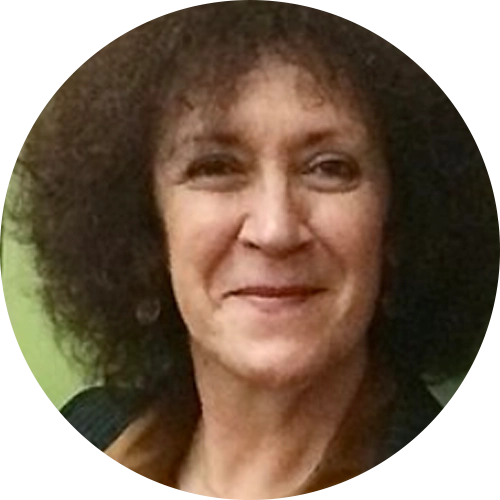
Julia Taguena
Professor, National Autonomous University of Mexico, past Director of Scientific Development at Mexican National Council of Science and Technology, National Autonomous University of MexicoJulia Tagüeña Parga is a Mexican physicist from the School of Science at the National Autonomous University of Mexico (UNAM) and Doctor of Science from the University of Oxford. She was one of the Directors for Scientific Development at the Mexican National Council of Science and Technology (CONACYT) from 2013 to 2018, and was General Director of Mexico's Science and Technology Consulting Forum (2018-2020). The main goals of the Forum is to act as an independent advisor of how science and technology should be integrated into Mexican laws (both at the state and federal level.) The Forum also acts an independent advisor to Mexico's Executive power and to Conacyt.

Serge Villemure
Self-Employed/Consultant, EDI and Science Policy. Past NSERC Director of the Chairs for Women in Science and Engineering Program, Self-Employed/ConsultantSerge Villemure was the NSERC Director of the Chairs for Women in Science and Engineering Program from 2013-21. He was also responsible for integrating equity, diversity and inclusion considerations into policies and programs, and facilitating EDI analysis and capacity building across the Agency (where he performed the role of EDI Champion), and at the Tri-agency level. He was responsible for the organization of Gender Summit 11, held in Montreal, in November 2017, and was Chair of its Steering Committee.
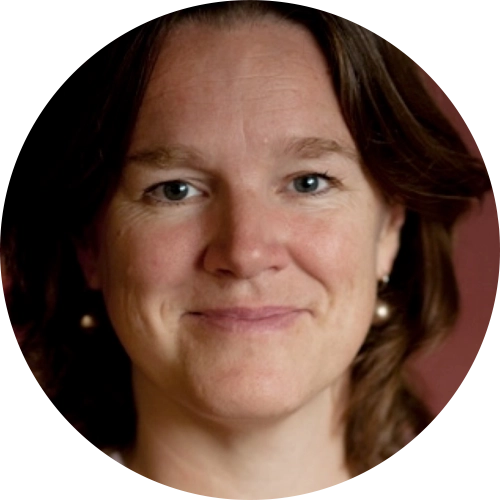
Claartje Vinkenburg
Independent Expert, Member of the Dutch National Advisory Committee for Diversity and Inclusion in Higher Education and Research, Independent ExpertClaartje Vinkenburg works as an independent expert on organisational change. Claartje conducts applied scientific research on diversity in careers, focusing on the role of implicit bias, normative views and discursive practices in understanding the overrepresentation of (white) men in top positions. Based on her research, she advises organizations that want more diversity and inclusion about what bias is, why it leads to suboptimal results and what you can do to limit the impact of bias on decision-making around selection and promotion.

Bilkis Vissandjee
Full Professor, Faculty of Nursing, Université de MontréalDr. Vissandjée is a tenured professor at the Faculty of Nursing Sciences of the University of Montreal, a researcher at the SHERPA Institute for Ethnocultural Communities, as well as at the Center for Public Health Research (CReSP) and the Center for International Studies and Research (CERIUM) of the University of Montreal. Her expertise spans gender-based violence, particularly female genital mutilation from a gender and social justice perspective and within the framework of migration pathways. She serves as the Chair of the Provincial Committee for the Delivery of Health and Social Services to Ethnocultural Communities at the Quebec Ministry of Health and Social Services. Since 2019, Dr. Vissandjée has been leading a transnational and international team grant from the Canadian Institutes of Health Research (CIHR) and the European Commission to support women living with female genital mutilation in Canada through better access to healthcare professionals trained to provide quality interventions.
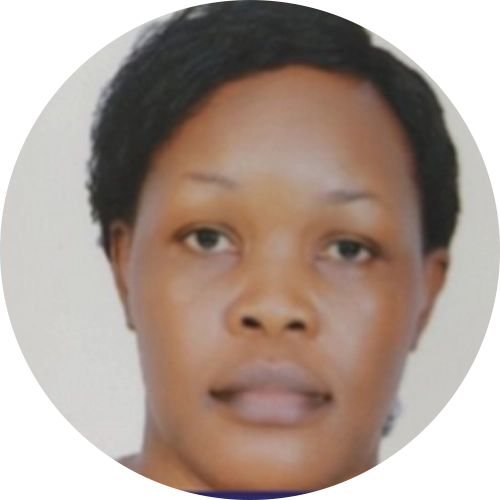
Faith Wakhungu
Assistant Director Research, National Research Fund KenyaFaith Wakhungu is an Assistant Director Research in charge of Planning and Compliance Department at the National Research Fund Kenya. She holds a master's degree in special needs education. Her current responsibilities include ensuring compliance with various guidelines at the Fund, development and reviewing of guidelines and policies, mainstreaming Gender and Inclusivity issues as well as resource mobilization through development proposals. Faith is the gender and inclusivity champion at the NRF and has participated and contributed in some of the gender and inclusivity forums organised by the Science Granting Councils Initiative (SGCI). Faith is also responsible for designing and implementing Gender and Inclusivity Programmes at the National Research Fund.
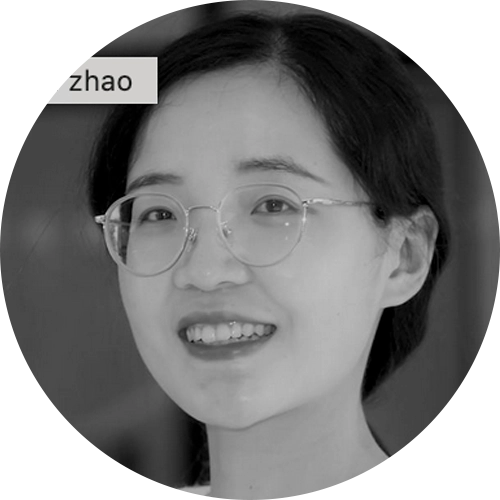
Xinyi Zhao
Laboratory of Digital and Computational Demography, Max Planck Institute for Demographic ResearchXinyl Zhao is a DPhil student in Sociology at the Leverhulme Centre for Demographic Science. Her research interests include applying digital and computational innovations (e.g., new types of data and methods) in demography and social science, with a particular interest in migration and gender disparity. She is also interested in the methods of scientometrics, spatial data analysis, and Geographic Information Systems (GIS). Her ongoing research analyses the gender disparity in academia, focusing on the topics of international scholarly mobility, online dissemination, and family-career conflict. This work draws on a variety of innovative data, including bibliometric data and social media data. She is affiliated with the lab of Digital and Computational Demography at the Max Planck Institute for Demographic Research (MPIDR) in Germany.

